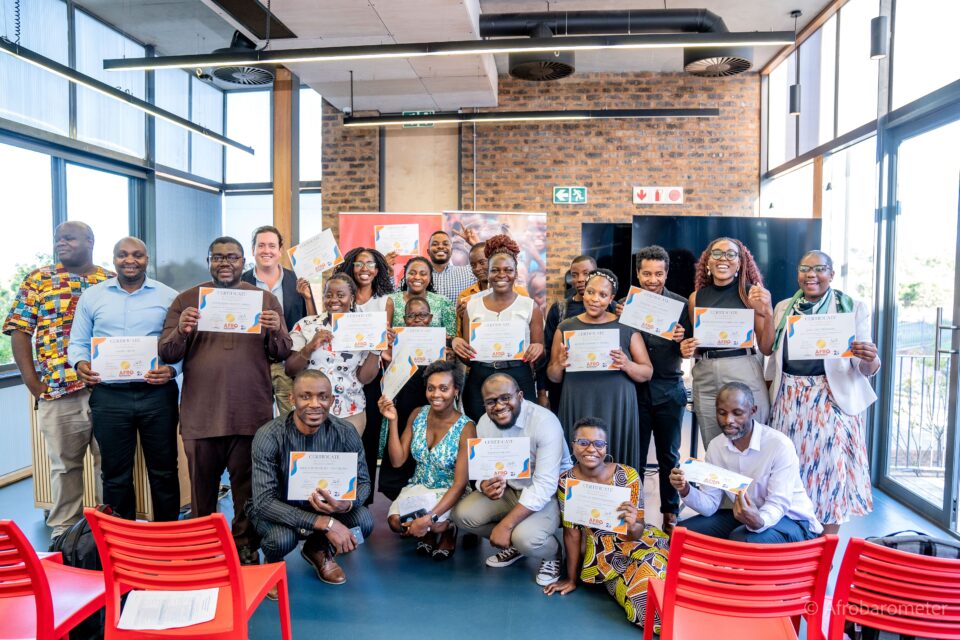And Showcase The Continent’s Analytical Excellence
PHOTO: Participants of the Afrobarometer summer school
“Writing never stops. This is the starting point. Take the lessons that you have learnt here and demonstrate to the world that not only can we produce our own data, but that we are capable of analysing it,” Afrobarometer surveys director Boniface Dulani told up-and-coming researchers at the closing ceremony of the Afrobarometer Pretoria summer school on Friday.
The three-week training programme equips African scholars with solid skills in research design, survey methodology, and the use of social statistics. Afrobarometer manages the programme in collaboration with the University of Pretoria’s Future Africa, a panAfrican research institute pioneering approaches to research and innovation on the continent and beyond.
“One thing that excites me is not only do we have access to the [Afrobarometer] data, but as Africans, we also understand the context from which the data comes,” Dulani added.
In his remarks to the group, Neeraj Mistry, deputy director of Future Africa, said, “In a world of mis- and disinformation, we need solid data and good analysis of it. So we are relying on you to give us the evidence base, to give us real-time analysis from the ground from real people’s contributions. That’s the kind of evidence that we need in order to make change happen.”
The 19 summer school participants – 50% women – represented 13 countries: Benin, Botswana, Ghana, Kenya, Lesotho, Madagascar, Malawi, Mozambique, Namibia, Nigeria, South Africa, Tanzania, and Uganda.
Reflecting on the summer school experience, David Asante-Darko from the Ghana Center for Democratic Development commented, “The highlight of my Afrobarometer summer school was my exposure to the diverse ways in which Afrobarometer data can be analysed to speak convincingly to African realities.
“As a member of an African community dedicated to the fight against the decline of democracy, it is assuring to have discovered that I have unfettered access to a wealth of credible and unbiased data,” Asante-Darko further noted.
Another participant, Caroline Nakayiza from Uganda, remarked, “As a data collector, I have picked a lot from the summer school. It has been a great journey – I have explored a new country and made new friends and connections.”
After weeks of intense learning, the participants are producing research papers that will feed into Afrobarometer’s publications series, advancing the organisation’s goal to “let the people have a say!”
About Afrobarometer
Afrobarometer (AB) is a trusted source of high-quality data and analysis on what Africans are thinking. With an unmatched track record of 350,000+ interviews in 39 countries, representing the views of 80% of the African population, AB is leading the charge to bridge the continent’s data gap. AB data inform many global indices, such as the Ibrahim Index of African Governance, Transparency International’s Global Corruption Barometer, and the World Bank’s Worldwide Governance Indicators. The data are also used for country risk analyses and by credit rating and forecasting agencies such as the Economist Intelligence Unit. All AB data sets are publicly available on the website and may be analysed free of charge using AB’s online data analysis tool.
About Future Africa at the University of Pretoria
The University of Pretoria established the Future Africa initiative as a platform to develop leadership in transdisciplinary research in Africa. Future Africa is a hub for African and global research networks to address the challenges that hamper transformation toward a prosperous, equitable, and sustainable future in Africa.

